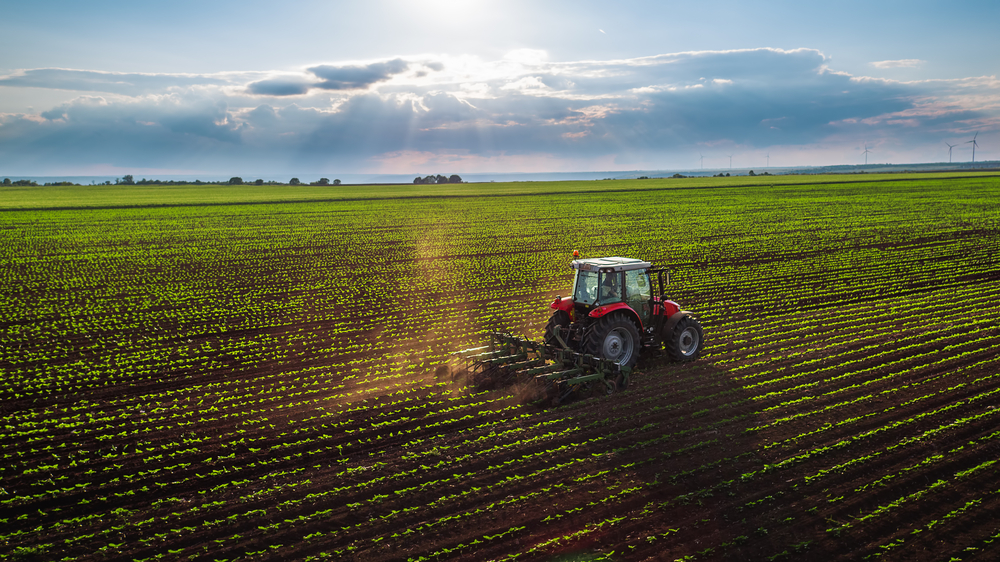BARE NECESSITIES
Food, with water, clean air and shelter, is a necessity for survival, but little else is. Vast numbers of people on the planet suffer shortages, or hang by a thread, in one or more of these essentials. The UK is blessed with a capability to be self-sufficient in all of them. For the Government to keep safe and protect people and fulfil its first duty, it must provide a structure which is resilient in securing all four of them, including food.
The leaked emails of Dr Tim Leunig, an economic adviser to the Chancellor, suggesting that in the UK farming is an irrelevance given its relative financial size in the economy as a whole, has attracted much comment and fallout in the press. That he suggests that Singapore is a sensible model for the UK to follow illustrates a one-track thought process of worrying proportions, if he has any influence. Government has, it is noted, publicly stated that these emails do not represent its position.
THE SINGAPORE MODEL
There are disciplines and lessons in Singapore life that the UK can learn from; but to pretend that the UK nation of 60 million people can be run similarly to a City State of 5 million, with completely different origins, cultures and needs, as well as organisational institutions, is trite. Singapore has no rural land and lifestyle to manage. It flourishes in certain respects but is totally dependent on the World outside for almost all materials, especially food. Serious disruption to that supply and its life will be overturned, an inherent weakness.
UK FARMING- THE GIFT OF FRESH FOOD
To return to the idea that farming is not relevant for the UK, applying a “get rich” test alone is to ignore some basics, and, when assessing its value, there are numerous considerations of fundamental importance to account for, such as
- Food imports in the UK are excessive, including many non-essential items and produce which goes into making unhealthy processed foods. As well as often being produced through unsustainable practices, those imports have a considerable carbon cost, transported as they are by ships and planes. The greater the UK’s dependence on these imports, the greater the UK’s insecurity.
- Local food, UK sourced, produced using sustainable methods, can substantially provide the basics for the UK, consuming seasonally. At the moment some 50+% of food is produced locally. It is fresher and with a longer shelf life, and so largely healthier than imports and certainly mostly tastier. Being more self-sufficient and cultivating an attitude of eating fresh, not processed, will make the UK populace healthier and more productive and so enable the country to operate more efficiently (See https://sherbhert.com/broken-britain-the-nhs-is-not-broken/).
- The UK environment is one of fabulous richness. Farmers contribute to rural management. Rural Britain provides a quality of existence, natural beauty and diversity with as balanced climate as any, even in this climate change time, which will be the envy of many a country. It is possible that the ex-pats in Singapore crave that country air when pollution from Indonesia grips Singapore, and even more, crave the freshness of food of a quality and abundance which Singapore cannot deliver.
If anything, the UK should be considering expanding its farming industry, reducing the well-publicised wastage of fresh food, pulling away from processed food and unnecessary imports. Food appreciation through education and involvement of more citizens, particularly in urban areas (such as through dedicated allotments and small community farming projects) would increase the civilisation of the excessively plastic and object-oriented culture which has developed over recent decades.
NURTURE THE UK’S ASSETS
The UK is blessed with a great climate for farming and, rather than treat its good fortune with disdain, might be better off nurturing it. Rather than seeking to copy the blueprints of other nations such as Singapore which may be right for themselves, the UK, while perhaps learning from others’ experiences and ideas where relevant, should focus on harnessing and maximising its own assets and natural advantages.
The UK is self-sufficient in water but needs still to look after it; is committed to cleaning up its air (having reduced carbon emissions and reliance on coal more than any other developed nation) and with growing concern to tackle climate change responsibilities; recognises it has work to do to deliver the housing it needs to give the necessary shelter; perhaps it can also become self-sufficient in basic food essentials and be a leader in sustainable farming.
At the moment it seems there is a risk of a lack of appreciation of the gift and opportunity the UK has in delivering great food to people, which seems so short-sighted, demonstrating an eye off the basic well-being of people as a whole. It would be inspiring to see real Government led ambition to prioritise food assets.

